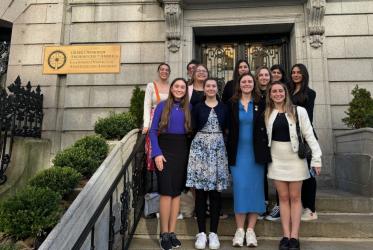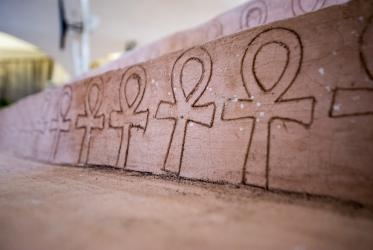The World Council of Churches (WCC) Faith and Order Commission’s study group working on ecclesiology met at Fuller Theological Seminary in Pasadena to continue an ongoing dialogue with representatives and experts on “new ways” of being the church.
A dialogue engaged Faith and Order Commission members, as well as representatives and experts from independent, persecuted, immigrant, evangelical, pentecostal, and African pentecostal churches coming from North America.
Plenary sessions focused on analysing the recent ecclesial transformations in light of “The Church: Towards a Common Vision”.
Dr Joseph Cumming, presenting the “persecution church” said: “Persecution brings further unity, not in the sense of ecumenism, but as they all share the same persecution”.
According to Dr Gaston Espinosa, pentecostalism seems incompatible with traditional churches, but in reality, said Espinosa, “there is a lot of common ground”.
Dr Clifton Clarke mentioned that pentecostalism in America is deeply individualistic.
Dr Juan Martinez, a specialist on immigrant churches, thinks that the church is as mobile as its people. The church is on the move, he noted.
Dr Ryan Bolger, added that, for example, “the online church” is only an extension of what is happening offline. Bolger said: “The followers of this church hold classical orthodox theological views, they see worship online from one church, they see sermons online from another church, and they can have a community online”.
From an evangelical perspective, Dr Oliver Crisp mentioned that, for example, an Anglican evangelical would describe the church in terms of ministry; a Baptist evangelical would focus on the local church; a charismatic evangelical would see things from a “global” perspective.
“This consultation and its results show us the significant common ground existing between the historical and ‘new ways’ of being churches. It is essential to pursue the Faith and Order Commission’s work and the continuous bilateral dialogues between both sides,” said Dr Ani Ghazaryan Drissi, WCC programme executive for the Faith and Order Commission.







